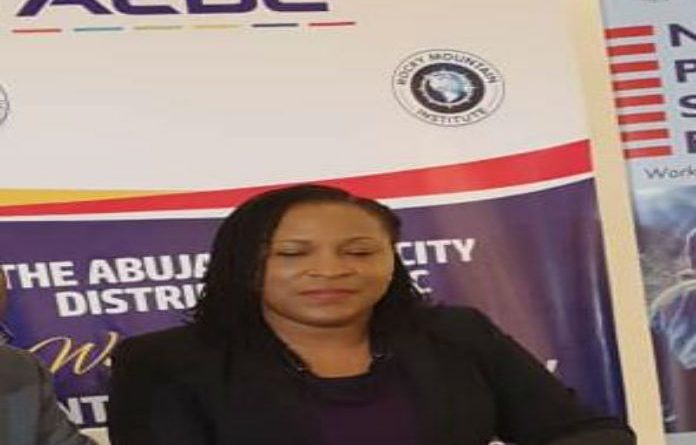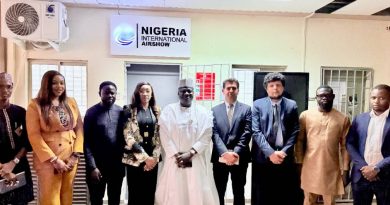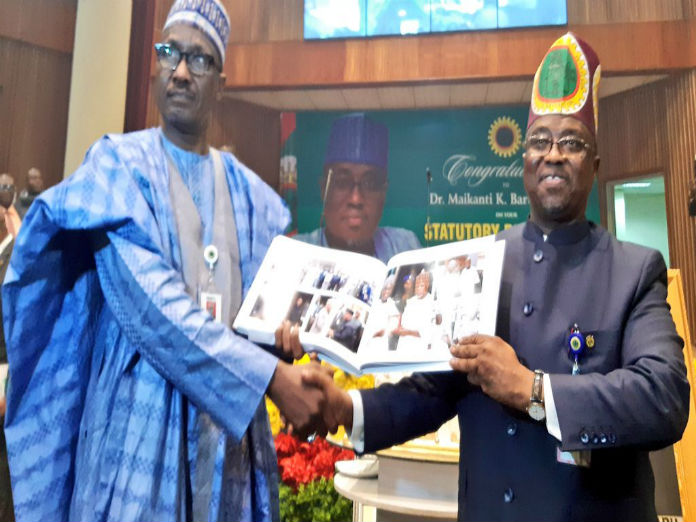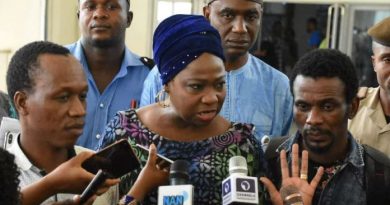GCEEP Appoints AEDC’s Ije Ikoku Okeke as Commissioner
AEDC’s Chief Financial Officer, Ije Ikoku Okeke has been appointed by the Global Commission for the eradication of energy poverty under the management of the world renowned US based Rockefeller Foundation as one of its commissioners in a renewed drive by the global body to end what it describes as one of the greatest challenges of the 21st century: the lack of access to electricity for almost a billion people across the world, particularly in sub-Saharan Africa. The Commission is co-chaired by Ernest Moniz, Professor of Physics & Engineering Systems Emeritus MIT, and former U.S. Secretary of Energy; President of the Rockefeller Foundation and former USAID Administrator Dr. Rajiv Shah; and Africa Development Bank President Dr. Akinwunmi Adesina.
The announcement of Ije Ikoku Okeke’s appointment follows the first full convening of the commissioners who participated in the launch of the Commission, which took place at the Bellagio Centre in Bellagio, Italy on September 10, 2019. The Commission will operate under the joint chairmanship of The Rockefeller Foundation President Dr. Rajiv Shah, former U.S. Secretary of Energy Ernest Moniz and the Africa Development Bank President – Dr. Akinwunmi Adesina.
On September 12, 2019, The Rockefeller Foundation announced the launch of the Global Commission to End Energy Poverty (GCEEP) to address one of the greatest challenges of the 21st century. Ije Ikoku Okeke whose area of expertise is in infrastructure finance, private equity and distribution management is expected to work with other renowned global experts in their efforts to bring electricity to the over 850m people who live without access to energy today, and according to The World Bank, 650 million will still lack energy in 2030, falling far short of the United Nations Sustainable Development Goals. Ninety percent of the 650 million people live in sub-Saharan Africa.
According to the President of the Rockefeller Foundation and Chairman of the Commission – Dr. Rajiv Shah at the launch of the Commission, “we cannot end poverty without ending energy poverty. Despite recent progress, the world is not on track to solve this problem by 2030. Now it is time to unleash the full potential of distributed energy by integrating the strengths of grid and of-grid systems in order to enable large –scale public-private partnerships.”
Former U.S. Secretary of Energy Ernest Moniz underscored this vision. “Access to electricity has increased dramatically in the past two decades, thanks to massive public and private investment in grid infrastructure,” said Moniz, who is also special advisor to the MIT president and the Cecil and Ida Green Professor of Physics and Engineering Systems emeritus at MIT. “To reach those who remain beyond the reach of the grid will require not only redoubled investment, but also innovative thinking and cooperative action on the part of a host of individuals and institutions. Our Commission brings together an extraordinary group of leaders with unique talents and knowledge and a determination to finish the job.”
The Commission intends to forge a robust, actionable consensus that lays out viable pathways for accelerating energy access quickly and cost-efficiently. It is comprised of heads of development banks, utilities, and off-grid firms, along with senior academics, industry leaders, and investors. “Economies cannot develop in the dark,” said Adesina, President of the African Development Bank. “Close to 600 million people still don’t have access to electricity in Africa, and the majority live in rural areas. Grid expansion alone will not be enough to electrify these populations, but with a combination of distributed energy solutions and smart-grid expansion we can achieve universal, economically impactful electrification.”
The Commission will be supported by the work of a research team led by GCEEP Secretary and MIT Energy Initiative Deputy Director Robert Stoner and MIT visiting professor Ignacio Perez-Arriaga. The research team is focused on identifying and addressing the barriers to achieving universal, economically impactful electrification. “Energy poverty is the end result of the failure of a complex system that spans physical infrastructure, advanced technologies, markets, policy, and regulation. Ending it requires finding generalizable solutions that make all parts of the electricity systems of low access countries reliable and affordable for everyone,” said Stoner. “Our research team will work closely with commissioners to develop creative actionable ideas.”
The GCEEP launch event also featured the release of an inception report developed by the MITEI research team to frame the salient issues in the sector today and serve as a starting point for the Commission’s work. During the course of its grant, MITEI will identify an implementable roadmap to end energy poverty with solutions that would provide affordable, sustainable, and reliable energy for all.
The co-chairs will next meet at a panel event during the United Nations General Assembly in New York at The Rockefeller Foundation’s offices on September 25.
(AEDC Media)




